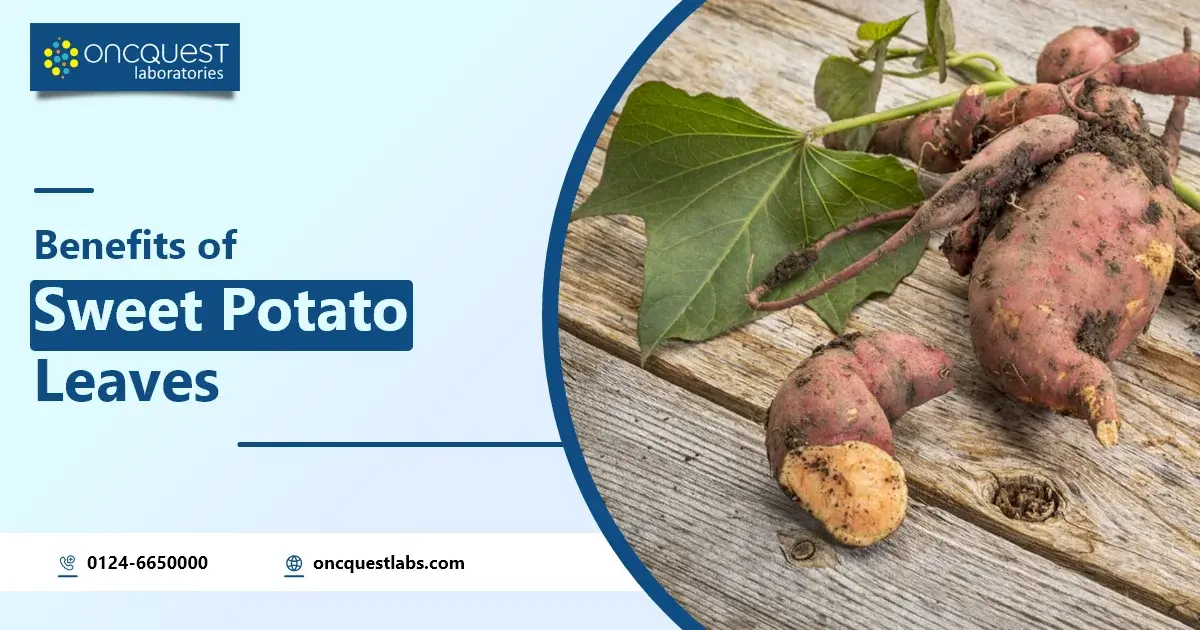Sweet potato leaves, often overlooked in favor of the more commonly consumed tuber, are a nutrient-rich and versatile vegetable that is widely enjoyed in various cultures around the world. These vibrant green leaves are packed with vitamins, minerals, and antioxidants, making them a powerhouse of nutrition. Traditionally used in Asian, African, and Pacific Island cuisines, sweet potato leaves are now gaining popularity for their health benefits and culinary potential. Whether sautéed, steamed, or added to soups and stews, these leaves offer a delicious way to boost your diet with essential nutrients that support overall well-being.
Contents
Nutritional Value of Sweet Potato Leaves
Sweet potato leaves are a nutritional powerhouse, offering an impressive array of essential vitamins and minerals contributing to overall health. Rich in vitamins A, C, and B-complex, these leaves are vital in supporting immune function, promoting healthy skin, and enhancing vision. They are also an excellent source of iron, calcium, magnesium, and potassium, which are crucial for maintaining strong bones, regulating blood pressure, and ensuring proper muscle function. Sweet potato leaves are also packed with dietary fiber, aiding digestion and promoting gut health. The presence of antioxidants such as polyphenols and flavonoids further boosts their health benefits by combating oxidative stress and reducing inflammation, making sweet potato leaves a valuable addition to a balanced diet.
Health Benefits of Sweet Potato Leaves
Sweet potato leaves are not only nutritious but also offer a wide range of health benefits that contribute to overall well-being:
Boosts Immune System
Rich in vitamins A and C, sweet potato leaves help strengthen the immune system, enhancing the body’s ability to fight off infections and illnesses. Vitamin C, in particular, stimulates the production of white blood cells, which are essential for immune defense.
Promotes Eye Health
The high vitamin A content in sweet potato leaves supports eye health by protecting the cornea and reducing the risk of age-related macular degeneration. The carotenoids present also contribute to better vision and overall eye function.
Supports Digestive Health
With their high fiber content, sweet potato leaves aid in digestion by promoting regular bowel movements and preventing constipation. The fiber also supports gut health by fostering a healthy balance of gut bacteria.
Enhances Heart Health
Sweet potato leaves are a good source of potassium, a mineral that helps regulate blood pressure and reduce the strain on the cardiovascular system. This contributes to a lower risk of hypertension and related heart diseases.
Anti-inflammatory Properties
The antioxidants and anti-inflammatory compounds in sweet potato leaves help reduce inflammation in the body, which can lower the risk of chronic diseases such as arthritis, diabetes, and heart disease. These properties also aid in the recovery from inflammatory conditions.
Aids in Blood Sugar Regulation
Consuming sweet potato leaves may help regulate blood sugar levels, making them beneficial for individuals managing diabetes. The fiber slows down the absorption of sugars, preventing spikes in blood glucose levels.
Promotes Skin Health
The antioxidants, along with vitamins A and C, contribute to healthy skin by protecting against oxidative damage and promoting collagen production. This can result in a more youthful appearance and a reduction in signs of aging, such as wrinkles and fine lines.
Incorporating sweet potato leaves into your diet provides these significant health benefits, making them a valuable addition to a balanced and nutritious diet.
Uses of Sweet Potato Leaves
Sweet potato leaves are incredibly versatile and can be used in various culinary applications to enhance both flavor and nutrition. In many cuisines around the world, these leaves are a staple ingredient. They can be sautéed with garlic and olive oil for a simple, nutritious side dish or added to soups and stews to enrich the broth with their mild, slightly earthy flavor. In salads, they provide a fresh, leafy texture and nutritional boost. Additionally, sweet potato leaves can be steamed or boiled and incorporated into dishes like curries and stir-fries, offering a vibrant color and a nutrient-packed punch. Beyond their culinary uses, sweet potato leaves can also be blended into smoothies for an added health kick or used as a wrap for various fillings, much like lettuce. Their adaptability in the kitchen makes them a valuable addition to a wide range of recipes, promoting both culinary creativity and dietary health.
Conclusion
Sweet potato leaves, often underappreciated, are a remarkable and nutritious addition to any diet. Packed with essential vitamins, minerals, and antioxidants, these leaves offer numerous health benefits, from boosting the immune system and promoting eye health to supporting digestive health and reducing inflammation. Their versatility in the kitchen allows for a range of culinary applications, making them easy to incorporate into various dishes. By adding sweet potato leaves to your meals, you can enhance both the flavor and nutritional value of your diet, contributing to overall well-being and a balanced lifestyle. Embrace this humble green leaf as a delicious and healthful way to nourish your body.
Frequently Asked Questions (FAQ)
Can sweet potato leaves be eaten raw?
- While sweet potato leaves can be consumed raw, they are often better enjoyed cooked. Cooking helps to reduce the presence of oxalates and enhances their flavor and digestibility.
Are sweet potato leaves better than spinach?
- Both sweet potato leaves and spinach are highly nutritious, but sweet potato leaves offer unique benefits such as higher levels of certain antioxidants and vitamins. Choosing between them can depend on personal taste and nutritional needs.
How do I store sweet potato leaves?
- Store fresh sweet potato leaves in a perforated plastic bag in the refrigerator, where they can stay fresh for up to a week. For longer storage, you can freeze them after blanching.
Can I grow sweet potato leaves indoors?
- Yes, sweet potato leaves can be grown indoors in pots or containers. Ensure they receive adequate sunlight and water for optimal growth.
How often should I eat sweet potato leaves for health benefits?
- Incorporating sweet potato leaves into your diet a few times a week can help you reap their health benefits. As with any food, variety and moderation are key to a balanced diet.





